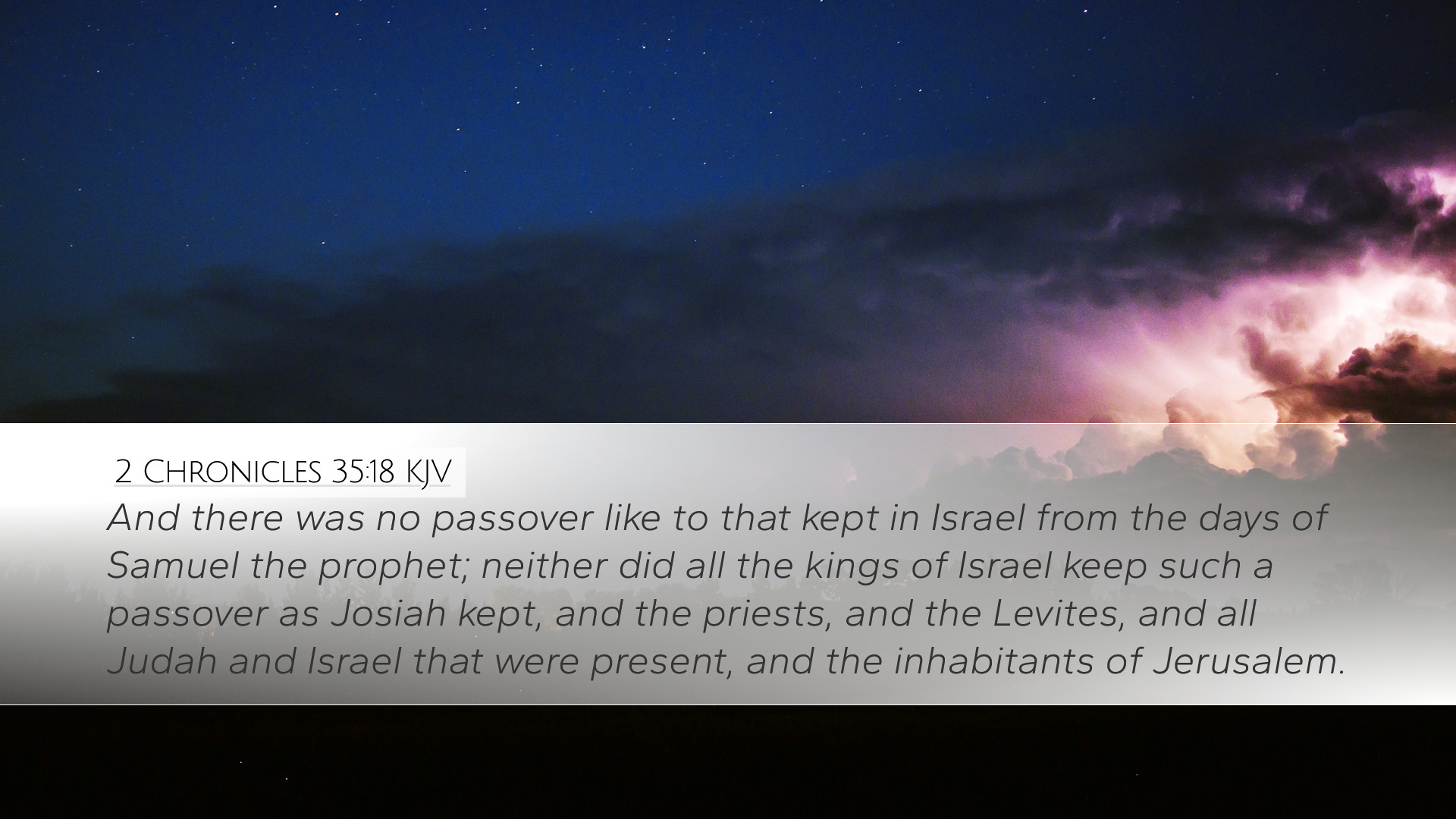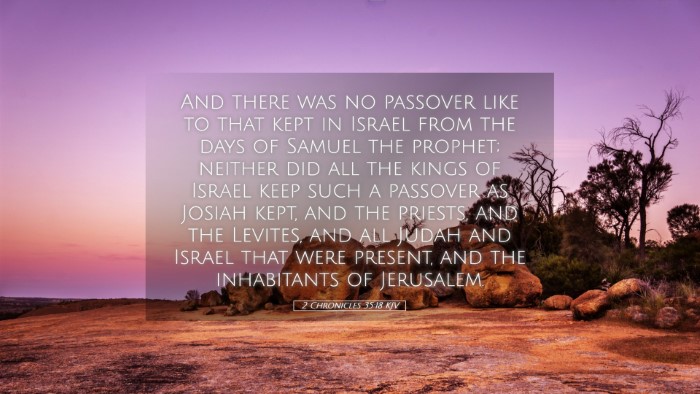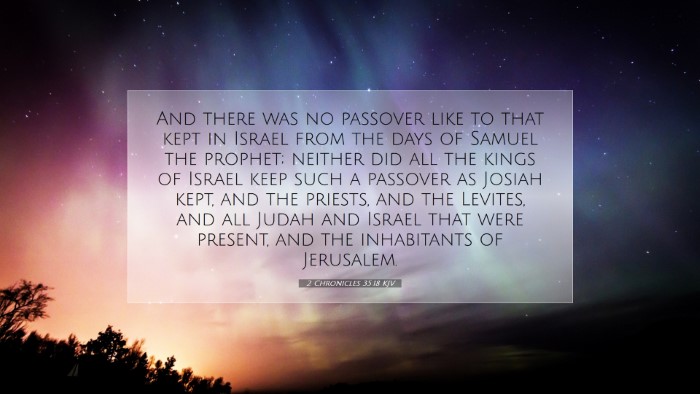Commentary on 2 Chronicles 35:18
Verse: "And there was no Passover like to that kept in Israel from the days of Samuel the prophet; neither did all the kings of Israel keep such a Passover as Josiah kept, and the priests, and the Levites, and all Judah and Israel that were present, and the inhabitants of Jerusalem."
Introduction
This verse is situated within a broader narrative concerning the religious reforms of King Josiah of Judah, who was one of the most significant kings in Israel's history. The observance of Passover under Josiah not only reveals the revival of proper worship but also emphasizes the importance of communal celebration and adherence to divine commandments.
Historical Context
The Passover commemorates the Exodus of the Israelites from Egypt, representing God's deliverance. This ritual was meant to be a poignant reminder of God's covenant and faithfulness. By the time of Josiah's reign, the practices surrounding the Passover had fallen into disarray. Josiah's commitment to restoring the worship of Yahweh led to this unique celebration, marking a spiritual high point in the nation of Judah.
The Significance of the Passover
As highlighted in this verse, the Passover kept during Josiah's reign was unparalleled. Scholars like Matthew Henry suggest that this moment exemplified renewed zeal for the Lord’s commandments. He notes that Josiah's dedication to restoring the temple worship was met with joyous participation from the people of Judah and Israel.
Albert Barnes emphasizes the assembly's inclusivity. This Passover included not only the people of Judah but also attendees from Israel, illustrating a unification under the worship of Yahweh despite the division between the kingdoms. This inclusivity marked a significant moment in the collective religious identity of the Israelites.
Adam Clarke elaborates on the fervent worship and meticulous adherence to the original instructions for the Passover. He posits that such dedication was uncharacteristic of the reigns prior to Josiah and argues that this occasion was indicative of an awakening spiritual consciousness within the people.
Uniqueness and Historical Impact
The phrase "there was no Passover like to that kept in Israel from the days of Samuel" signifies its distinctiveness. The comparison draws attention not only to the scale and splendor of this observance but also to its substantive spirit of worship. It points back to a time when Israel was also experiencing significant spiritual leadership under Samuel.
- Spiritual Leaders' Role: The priests and Levites had a pivotal role in the success of this Passover, as stated in the verse. Their leadership and commitment to God were essential in rallying the people for this profound act of worship.
- Comparison to Kings: The commentary notes the lack of similar celebrations during previous reigns, implying that many had neglected this vital ritual. Josiah's Passover stands as a contrast to the spiritual apathy that characterized so many of his predecessors.
- National Unity: The gathering of "all Judah and Israel that were present" highlights an important moment of national unity, showcasing a collective return to the covenant practices intended by God.
Theological Insights
This verse holds profound theological implications, particularly concerning the centrality of covenant obedience and the importance of community in worship. The observance of the Passover serves as a reminder of God's faithfulness and the call for His people to remember and proclaim His works through acts of worship.
Henry notes the importance of heartfelt worship, emphasizing that Josiah's reforms were not merely ritualistic but were steeped in genuine dedication to God. This perception is reinforced by the communal aspect of the Passover, which encourages believers to come together as a body united in faith.
Barnes expresses that such a glorious observance prompts each generation of believers to reflect on how they sanctify special occasions in their faith journeys. The verse calls attention to the depth of meaning behind the observance of holy days.
Clarke links the significance of the Passover to Christ, viewing this event as a foreshadowing of the ultimate sacrifice embodied in the New Testament. The Passover illustrates the fundamental theological themes of deliverance and redemption, which culminate in the sacrifice of Jesus Christ.
Conclusion
2 Chronicles 35:18 provides a profound glimpse into the renewal of covenant faithfulness under King Josiah. The unparalleled nature of this Passover reminds us of the importance of rightful worship, community involvement, and adherence to God's commandments. The insights from public domain commentaries illustrate Josiah's reign as a significant spiritual revival, exhorting modern believers to reflect deeply on their own practices of worship and alignment with God’s covenant.
For pastors, students, theologians, and scholars, this verse serves as an invitation to explore not only the historical context of Israel's worship but also its theological richness, encouraging each to foster a deeper commitment to communal worship and reverence for God’s enduring promises.


